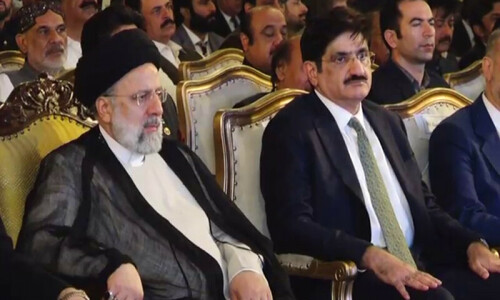
ISLAMABAD: The Pakistani government placed a prominent militant under temporary house detention because of his attempts to stoke conflict between Sunni and Shia Muslims since his release from prison two months ago, police said Thursday.
Malik Ishaq, a founder of the banned Sunni extremist group Lashkar-e-Jhangvi, was accused in dozens of killings, including many of minority Shias, but was released on bail in July after 14 years in prison because the Supreme Court decided there was not enough evidence to keep holding him.
He has been giving public speeches since his release whipping up anger toward Shias, who make up about 15 percent of the population, said a police officer, speaking on condition of anonymity because he was not authorized to talk to the media.
The Punjab provincial government on Wednesday ordered that Ishaq remain at home for 10 days, said Sohail Chatta, the police chief in Rahim Yar Khan district where Ishaq lives.
Ishaq's behavior endangered ''sectarian harmony and caused a sudden rise in sectarian temperature in the country,'' said Chatta.
Most Sunnis and Shias live together peacefully in Pakistan, but the country also has a long history of extremists on both sides carrying out attacks against the opposite sect. In recent years, many of these attacks have involved Sunnis targeting Shias.
Suspected Sunni extremists opened fire on Shia pilgrims traveling by bus through southwest Pakistan on Tuesday on their way to Iran, killing 26 people, officials and survivors said.
Lashkar-e-Jhangvi claimed responsibility in a telephone call to a local journalist in Quetta, but that claim could not be verified.
In the 1980s and 1990s, Pakistan became the scene of a proxy war between mostly Shia Iran and Sunni Saudi Arabia, with both sides funneling money to sectarian groups that regularly targeted each other.
Ishaq was arrested in 1997, and has been accused of a slew of crimes. In 2009, he was blamed for orchestrating an attack on the Sri Lanka cricket team in the eastern Pakistani city of Lahore. Six security officers and a driver died in that assault.
His release underscored the difficulty Pakistani prosecutors have had convicting suspects in a justice system that lacks resources, is plagued by corruption and is rife with tales of witness intimidation.












































Dear visitor, the comments section is undergoing an overhaul and will return soon.